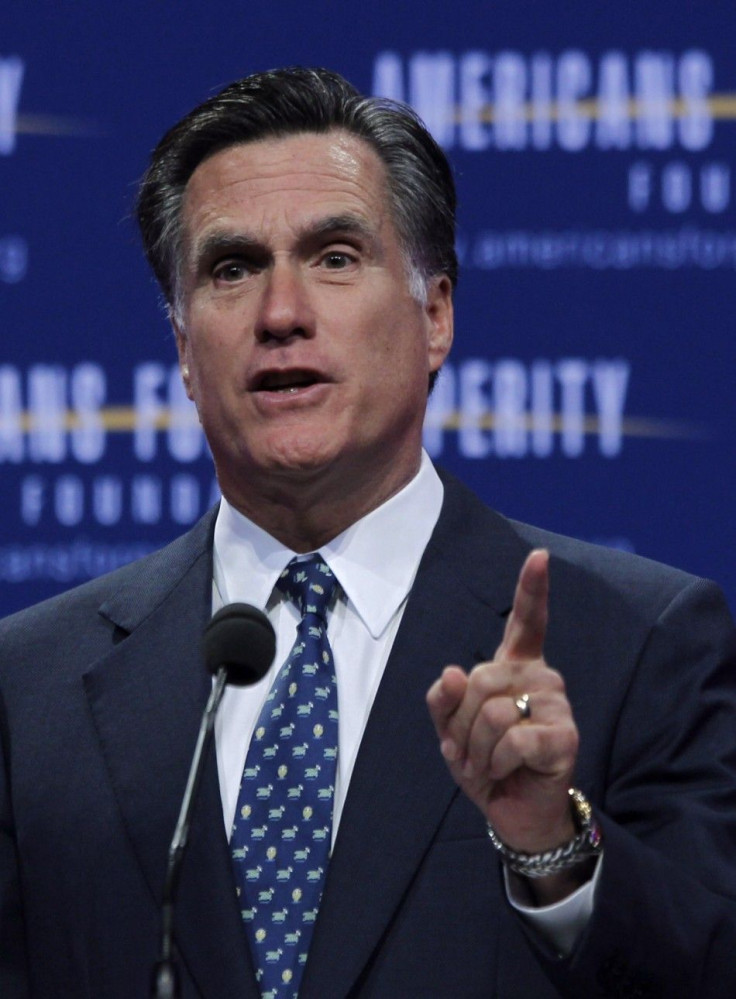Romney Back in Spotlight, Faces Barrage of Attacks

Mitt Romney's win in the Iowa caucuses has slapped him with a once-familiar tag: frontrunner. Going into the New Hampshire Primary next Tuesday, the former Massachusetts governor has jumped back into to the unsavory spotlight of the lead. The result: the return to the common stasis of any political campaign. Where once intra-party bickering sunk many past frontrunners, the common political mantra of punch up has taken hold in the 2012 campaign.
Romney endured a sustained attack before. But for the first time, it appears his five remaining GOP opponents may have ended bickering amongst themselves and focused exclusively on the man up top, while Romney and President Barack Obama have already begun campaigning as if they are likely opponents.
The president's entrance into the scrum was almost immediate, trying his best to dull the patina of an Iowa win by undercutting Romney's results and hogging the spotlight himself. First came Obama's video-linked session with Iowa caucus goers, followed by the announced appointment of Richard Cordray to head the contentious Consumer Financial Protection Bureau, which he painted as part of an ongoing battle between himself and an unreasonably stalwart conservative Congress.
The American people deserve to have qualified public servants fighting for them every day - whether it is to enforce new consumer protections or uphold the rights of working Americans. We can't wait to act to strengthen the economy and restore security for our middle class and those trying to get in it, and that's why I am proud to appoint these fine individuals to get to work for the American people, Obama said in a White House statement announcing recess appointments to the CFPB and National Labor Relations Board.
Obama's campaign squad has singled out Romney's Iowa win as a meaningless exercise in political might.
Governor Romney won the Iowa caucuses by eight votes in part because he called in the air force in the form of his SuperPAC to carpet bomb Newt Gingrich in what was undoubtedly the most brutal and negative campaign Iowa has seen, said Obama's chief campaign strategist David Axelrod.
Obama's efforts to slap Romney back into the GOP scrum reflect the belief that a prolonged Republican primary could benefit the president's reelection efforts. But it also makes for strange bedfellows.
Gingrich Amps-Up Romney Criticism
Joining the Commander in Chief among Romney's biggest antagonists is former House Speaker Newt Gingrich, who has seemingly dropped his promise to campaign clean by going right for Romney's jugular and questioning his conservative bonafides. The slam is particularly effective, with Romney's record as Massachusetts governor offering a lesson in moderate politics.
The fact is, Gov. Romney has a very limited appeal in a conservative party, Gingrich said.
It's a familiar tact. The former House Speaker watched his own lead in the Republican primary wither under the spotlight in Iowa and may be trying to return the favor.
He can't even break out in his own party and I don't think he's going to, Gingrich said. And he'll do fairly well here, this is one of his three best states. But the fact is that Governor Romney in the end has a very limited appeal in a conservative party.
Curiously, Rick Santorum has become a peacocking mess of pomp and sweater vests, riding high after a surprisingly strong second place showing in the Iowa caucuses. The former Pennsylvania senator's sights are set on Obama, though he has yet to leapfrog Romney in any sort of substantive way.
Our office is buzzing, Santorum said after an appearance in New Hampshire. We're the folks that people are getting excited about, going on to call Obama a president who doesn't understand us.
Whiling away in anonymity, Jon Huntsman has kept touting his own promise as the next candidate of the moment, while Ron Paul and Rick Perry have taken breathers back home in Texas.
Perhaps the era of surging candidates is over?
© Copyright IBTimes 2024. All rights reserved.











